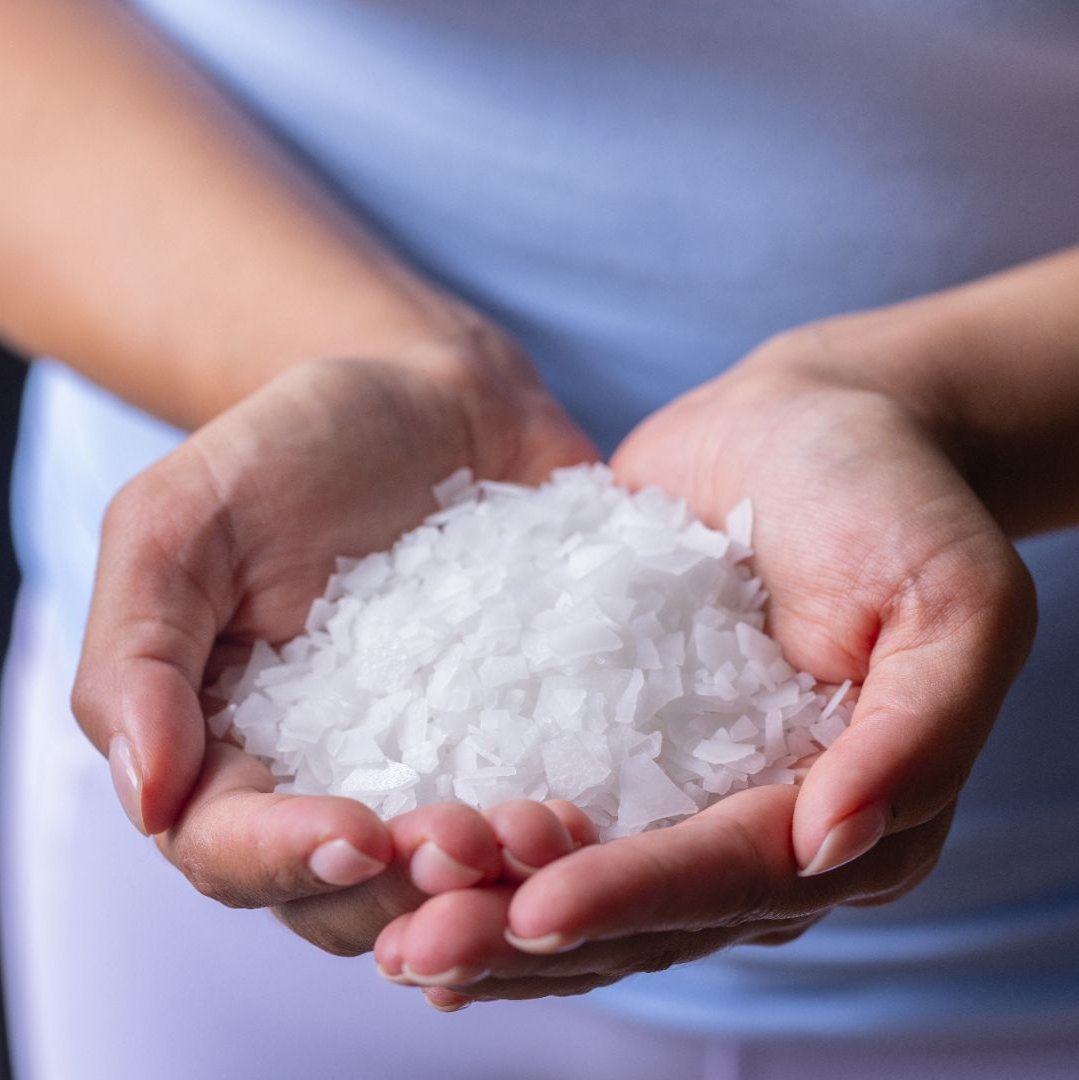
The Role of Magnesium in Muscle Function
Magnesium is a critical mineral involved in over 300 enzymatic processes in the body. It plays a vital role in muscle contraction and relaxation by balancing calcium and potassium levels within muscle fibers. Without adequate magnesium, muscles are unable to relax properly after contraction, leading to cramping.
How Magnesium Supports Muscle Function:
- Electrolyte Regulation: Magnesium helps maintain the balance of other essential electrolytes, such as calcium and potassium, which are crucial for muscle health.
- Neuromuscular Function: Magnesium modulates nerve signals to prevent over-excitation, reducing the likelihood of spasms and cramps.
- Inflammation Control: Magnesium has anti-inflammatory properties that help reduce muscle soreness and stiffness, which can exacerbate cramping.
Evidence-Based Insights: Magnesium for Muscle Cramps
Scientific research has consistently shown that magnesium supplementation can help prevent and alleviate muscle cramps, especially in populations prone to magnesium deficiencies.
Key Research Findings:
- Pregnancy-Related Cramps:
A study published in The American Journal of Obstetrics and Gynecology demonstrated that magnesium supplementation significantly reduced the frequency and severity of leg cramps in pregnant women. - Exercise-Induced Cramps:
Research in the Journal of Sports Sciences found that athletes who supplemented with magnesium experienced fewer exercise-induced cramps and quicker recovery times. - Nighttime Cramps in Older Adults:
A review in Clinical Interventions in Aging concluded that magnesium supplementation was effective in reducing nocturnal leg cramps in aging populations, highlighting its role in improving sleep quality as well. - Chronic Medical Conditions:
Studies in Magnesium Research indicated that patients with chronic conditions such as diabetes or kidney disorders benefited from magnesium supplementation, which reduced cramping and improved overall muscle function.
Magnesium Deficiency and Muscle Cramps
Causes of Magnesium Deficiency:
- Dietary Insufficiency: A lack of magnesium-rich foods in the diet is a common cause of deficiency.
- Modern Agricultural Practices: Magnesium levels in soil have declined due to intensive farming, reducing the magnesium content of crops.
- Medication Use: Diuretics, antacids, and some antibiotics deplete magnesium levels.
- Chronic Conditions: Diseases such as diabetes and kidney dysfunction increase urinary magnesium excretion.
Symptoms of Magnesium Deficiency:
- Persistent muscle cramps
- Fatigue and weakness
- Restlessness or irritability
- Difficulty sleeping
- Tingling or numbness in extremities
How to Use Magnesium for Cramps
A tailored approach combining diet, supplementation, and topical application can effectively prevent and manage muscle cramps.
1. Magnesium-Rich Foods
Incorporating magnesium-rich foods into your diet can establish a strong foundation for muscle health. Examples include:
- Nuts and Seeds: Almonds, cashews, pumpkin seeds
- Leafy Greens: Spinach, kale
- Legumes: Black beans, lentils
- Whole Grains: Brown rice, quinoa
- Seafood: Mackerel, salmon
- Fruits: Bananas, avocados
- Dark Chocolate: A healthy and indulgent magnesium source
2. Oral Magnesium Supplements
For individuals unable to meet their magnesium needs through diet alone, oral supplementation is a convenient and effective option. Magnesium bisglycinate is particularly well-suited due to its high absorption rate and gentle effect on the stomach.
Dosage Guidelines:
- Adults: 300–400 mg/day
- Pregnant Women: 350–400 mg/day
- Athletes: 400–500 mg/day
3. Topical Magnesium Application
Magnesium oil and flakes offer localized relief for muscle cramps. Applied directly to the skin, magnesium bypasses the digestive system and is absorbed quickly into the muscles.
Application Tips:
- Magnesium Oil: Spray on calves, thighs, or other cramping muscles and massage until absorbed.
- Magnesium Flakes: Add to warm baths or footbaths to relax muscles and improve circulation.
4. Example Routines
Pregnant Woman, Age 35:
- Morning: Take magnesium capsules with breakfast.
- Evening: Apply magnesium oil to legs and soak in a magnesium flake bath twice weekly.
Active Male Cyclist, Age 40:
- Morning: Take magnesium capsules before training.
- Post-Workout: Apply magnesium oil to hamstrings and calves.
- Evening: Enjoy a magnesium flake bath twice weekly for recovery.
Why Choose OMg Magnesium Products?
OMg takes pride in its commitment to quality and effectiveness. Partnering with the Magnesium Health Institute, we ensure all our products meet the highest standards for purity, safety, and scientific validation. Whether you’re seeking systemic support, targeted relief, or a way to unwind after a long day, OMg offers a holistic magnesium supplementation approach that delivers results you can trust.
Our thoughtfully curated product range enables you to seamlessly integrate magnesium into your daily life, helping you achieve balance, recovery, and relaxation—all backed by science and crafted with care.
Featured Products:
- OMg Magnesium Bisglycinate Capsules: High absorption and gentle on the stomach, perfect for daily supplementation.
- OMg Magnesium Oil: Targets muscle cramps with fast-acting, localized relief.
- OMg Magnesium Flakes: Ideal for soothing baths that enhance relaxation and recovery.
Important Reminder
Magnesium supplementation is a safe and effective way to enhance sports recovery. However, always consult your healthcare provider before starting new supplements to ensure they align with your individual health needs.
Here are five key articles exploring the relationship between magnesium and muscle cramps:
- Magnesium for Muscle Cramps - Cochrane Review
This comprehensive review evaluates the efficacy of magnesium supplementation in preventing and treating muscle cramps across various populations, including older adults and pregnant women. The analysis suggests that magnesium may not significantly reduce cramp frequency or severity in the general population, though certain subgroups might experience benefits.
Cochrane - Effects of Magnesium Supplementation on Muscle Soreness in Different Types of Physical Activities: A Systematic Review
This systematic review examines the impact of magnesium supplementation on muscle soreness resulting from various physical activities. The findings indicate that magnesium can aid in reducing muscle soreness and improving recovery in physically active individuals.
Translational Medicine - A Randomized, Double-Blind, Placebo-Controlled, Multicenter Study Assessing the Efficacy of Magnesium Oxide Monohydrate in the Treatment of Nocturnal Leg Cramps
This clinical trial investigates the effectiveness of magnesium oxide monohydrate in alleviating nocturnal leg cramps. The results demonstrate a significant reduction in cramp frequency and improvement in sleep quality among participants receiving magnesium supplementation compared to the placebo group.
Nutrition Journal - What is the Role of Magnesium for Skeletal Muscle Cramps? A Cochrane Review Summary with Commentary
This article provides a summary and commentary on a Cochrane review regarding magnesium's role in managing skeletal muscle cramps. It discusses the potential benefits and limitations of magnesium supplementation for cramp prevention and relief.
ISMNI
Magnesium for Skeletal Muscle Cramps - PubMedThis publication explores the association between magnesium deficiency and muscle cramps, reviewing evidence from interventional studies on the effects of magnesium-based therapies. It highlights the importance of maintaining adequate magnesium levels for muscle health. Accurate Clinic
















